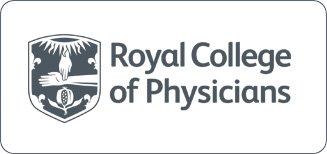BPPV Specialist in London

BPPV, or Benign Paroxysmal Positional Vertigo, is a condition characterised by brief episodes of vertigo. These episodes are prompted by specific head movements, can last anywhere from a few seconds up to a minute, can range in severity from mild to intense and may recur sporadically for years. The best way to ensure BPPV does not recur is to seek treatment from a BPPV specialist in Harley Street, London at Harley Street AVM.
Who is Susceptible to BPPV?
BPPV is the most common type of inner ear disorder. People of all ages may experience BPPV but most cases occur in people over 50. It is estimated that as many as half of all people over 50 will experience at least one bout of BPPV in their life. BPPV usually clears up on its own, but unless a person seeks treatment for the condition it may return at any time.
BPPV Symptoms
While vertigo is the primary symptom of BPPV it is not the only one. Others include:
- Lightheadedness
- Dizziness
- Problems with balance
- Nausea
- Blurred vision
- Nystagmus (involuntary eye movements)

The importance of treatment
The good news is that BPPV is not indicative of a more serious problem and may disappear on its own within a few days to a few weeks of the initial episode. That said, because the associated dizziness can sometimes be intense, BPPV poses a potentially serious risk of falls, especially in older adults. For that reason, it is often recommended that people with BPPV seek out therapeutic remedies to lessen symptoms and hasten resolution of the problem. It can also potentially lead on to other problems such as Vestibular Migraine.
The most effective treatment for BPPV is called the Epley manoeuvre. It is a form of physical therapy that entails repositioning the body in order to manipulate the position of calcium particles within the ear that are believed to trigger BPPV episodes.
BPPV Specialist in Harley Street, London
BPPV be very debilitating and can pose a particular danger to older individuals who may experience devastating falls as a result of a BPPV episode. Harley Street AVM offer high-quality diagnosis and management of hearing and balance disorders, including BPPV. To book an appointment call (+44) 020 3480 9630, or write to: info@harleyavm.com.
Testimonials
What People are Saying
Frequently Asked Questions
What do the words Benign Paroxysmal Positional Vertigo mean?
- Benign means the condition, while vexing, is not life-threatening.
- Paroxysmal means that symptoms tend to ebb and flow. That is, they may be fairly low-level for a while and then suddenly intensify without warning.
- Positional indicates the condition is linked to the position of the head. So suddenly changing the position of your head or even turning it slightly while lying in bed may trigger symptoms.
- Vertigo is a sense of instability and may include a spinning sensation or a feeling that you are out of sync with your surroundings.
Is BPPV a common condition?
Approximately 30 out of every 1,000 people experience BPPV in a given year. It is also likely that many cases of BPPV go unreported by people who believe their vertigo is caused by something else. BPPV in children, while not common, does happen and also tends to get misdiagnosed as something else or simply not detected at all because the child does not know how to communicate what they’re feeling.
Why do head movements trigger BPPV?
The mechanism behind BPPV is thought to be due to calcium crystals in the inner ear that migrate when the head is moved, to positions they were not intended to occupy. These crystals play an important role in orientating a person to their surroundings. When they unexpectedly move into the wrong position, they start to send mixed signals to the brain resulting in vertigo.
How do I know I have BPPV?
If you experience vertigo but are unsure whether it stems from BPPV ask yourself these questions:
- When you turn over in bed do you suddenly feel like your head is spinning?
- Are you suddenly beset by vertigo when you stand up, tilting your head back, or after bending over to retrieve something on the floor?
- Is the vertigo accompanied by nausea or vomiting?
If you answer “yes” to one or more of these questions there is a good chance your vertigo is caused by BPPV. The best course of action is to seek help from a specialist at Harley Street AVM.
What is a BPPV specialist?
A BPPV specialist is a type of healthcare professional who specialises in the diagnosis and treatment of BPPV (Benign Paroxysmal Positional Vertigo). A BPPV specialist may be an Ear, Nose and Throat (ENT) doctor, a neurologist or a vestibular physiotherapist.
What are some common symptoms of BPPV?
Perhaps the most common symptom of BPPV is a sensation of spinning (vertigo), typically triggered by sudden head movements. Other symptoms include a loss of balance, nausea and light-headedness.
What is the cause of BPPV?
BPPV is caused when tiny calcium crystals that exist in the inner ear become dislodged for some reason and begin to move around. This movement disrupts balance signals being sent to the brain and the person experiences a brief episode of vertigo, nausea or light-headedness.
How is BPPV diagnosed?
A BPPV specialist at Harley Street AVM will diagnose the condition by examining the patient’s medical history and by administering specific head movement tests like the Dix-Hallpike Test or the Roll Test.
Are there medications that will help alleviate BPPV symptoms?
Because BPPV is a mechanical issue and not one caused by inflammation or infection, medications are not considered effective in treating it. Instead, the BPPV specialist may recommend repositioning techniques to help ease or even prevent symptoms.
What is the typical recovery period for BPPV?
The good news is that treatment can be quite effective, with many patients experiencing relief after just a treatment or two. Even so, a sense of imbalance or mild dizziness may linger for a few days after treatment.
Is there a danger that BPPV could come back?
It is an unfortunate possibility that BPPV may return after what seemed like effective treatment. Approximately 20 – 30% of patients will experience a relapse within a year, but those symptoms can be treated and home exercises can be taught that will often prevent relapses.
When should I see a BPPV specialist?
If you are experiencing frequent episodes of dizziness or vertigo, to the point that it is disrupting your quality of life, it’s time to see a BPPV specialist from Harley Street AVM.
Testimonials
Our Associations












The Care Quality Commission (CQC) is a public body of the Department of Health and Social Care established to regulate and inspect health and social care services in England.
CQC registration is a marker for standards of care. It is a mandatory requirement of all organisations which provide vestibular care or diagnostics.
Harley Street Audiovestibular Clinic is fully registered and compliant with all the stringent CQC requirements, ensuring you care is in the best possible hands.
About Audiovestibular Medicine (AVM)
Vestibular migraines are a particularly vexing condition that can make it difficult for a person to conduct their day-to-day business. Obtaining relief from the most significant symptoms is of paramount importance. For accurate vestibular migraine diagnosis and expert treatment contact Harley Street AVM by calling 020 3480 9630 or writing us at: info@harleyavm.com.












